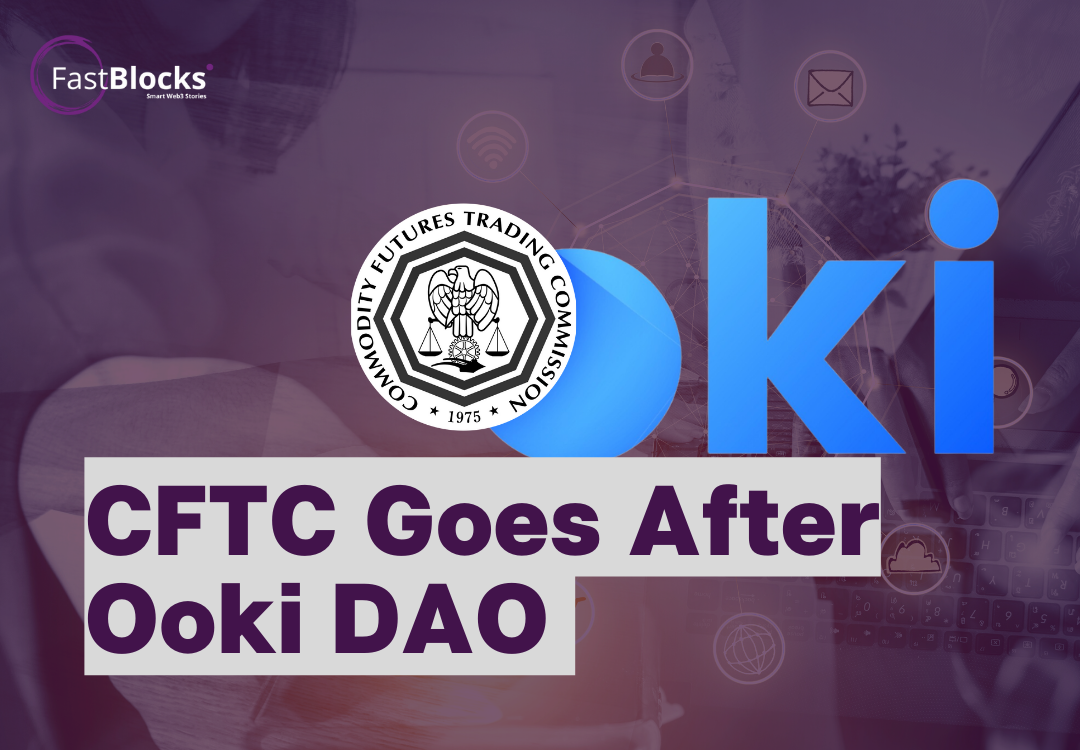Company creators can’t simply establish a DAO and walk away from accountability.

One of the most appealing things about DAOs (decentralized autonomous organizations) is that no single person is in charge. The group gets to make all decisions about the organization. DAOs give people voting power and a say. Sounds pretty great.
However, the Commodities Future Trading Commission (CFTC) has clarified that there is a downside.
On September 22nd, the CFTC filed charges against Ooki DAO and its founders, Tom Bean and Kyle Kistner, for “illegally offering leveraged and margined retail commodity transactions in digital assets; engaging in activities only registered futures commission merchants (FCM) can perform; and failing to adopt a customer identification program as part of a Bank Secrecy Act compliance program, as required of FCMs.”
Ooki DAO operated without proper registration, violating regulations and due diligence requirements. Now, their DAO members may be held personally liable for legal violations.
bZeroX and Ooki DAO
Ooki DAO was formerly known as bZeroX. The bZx Protocol facilitated trading in cryptocurrency on a leveraged basis using smart contracts on the Ethereum blockchain.
In August 2021, bZeroX transferred control of the bZx Protocol to the bZx DAO. In December 2021, it was renamed Ooki DAO. The company got a new name but continued to offer the same services previously provided by bZeroX.
One of the company’s founders, Mr. Kistner, made a public statement as this new Ooki DAO launched. He’s quoted as saying that the transfer of power was to “take all the steps possible to make sure that when regulators ask us to comply, that we have nothing we can really do because we’ve given it all to the community.”
Nice try. The CFTC isn’t buying it.
Before Ooki DAO was initiated, Bean and Kistner had complete control of the bZx Protocol and were members of bZeroX, LLC.
Participants in the Ooki DAO may now be held personally liable even though they were only recently given voting power. The CFTC served summonses to holders by posting to its chat box and notice board. A judge recently upheld this method of delivery.
What Happens Now?
This case is headed to court and could affect the way DAO stakeholders vote and participate; it will set a precedent for how DAOs operate in the future. It could make DAO participants less likely to engage and vote. It could effectively create two classes of token holders – people who vote and people who only hold.
DAOs are not insignificant.
Even after this court decision, there are many questions left to be answered. If a member votes once, are they liable for all the activities of the DAO? What happens to members outside the United States? Questions like these are popping up daily.
This new court case is only one stop along the long road to the evolution of decentralized finance. Company creators can’t simply establish a DAO and walk away from accountability. The CFTC knows this, and they’re ready for the challenge.
About Kit

Kit Campoy is a former retail professional turned freelance writer. She writes about Leadership, Retail, and Web3. Contact Kit for your content needs.

